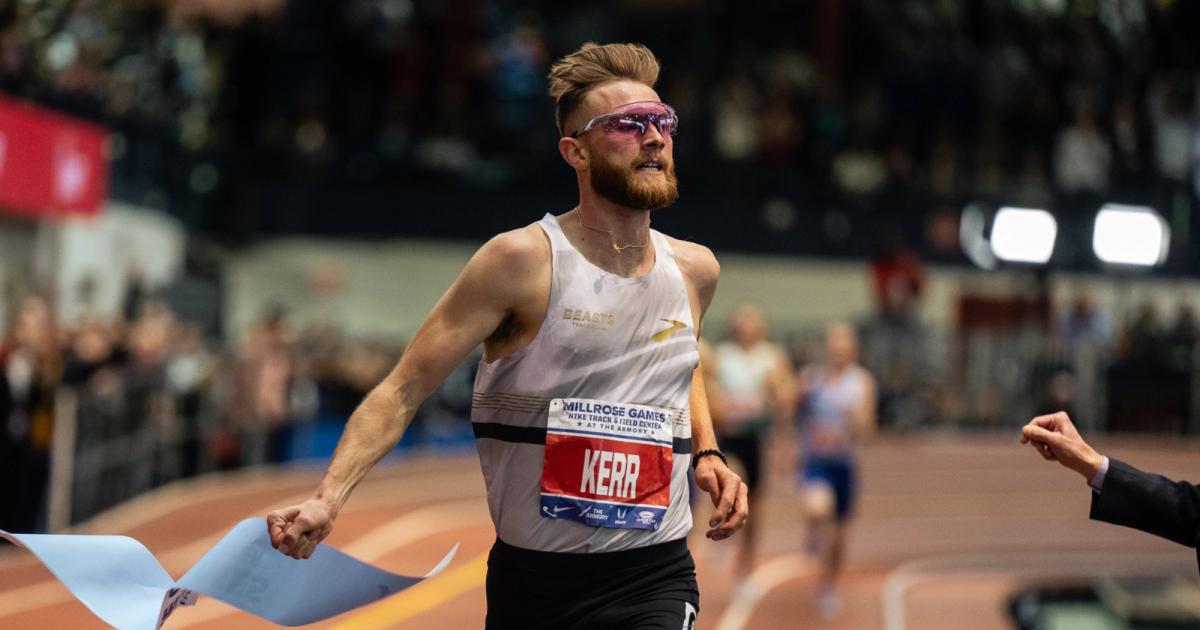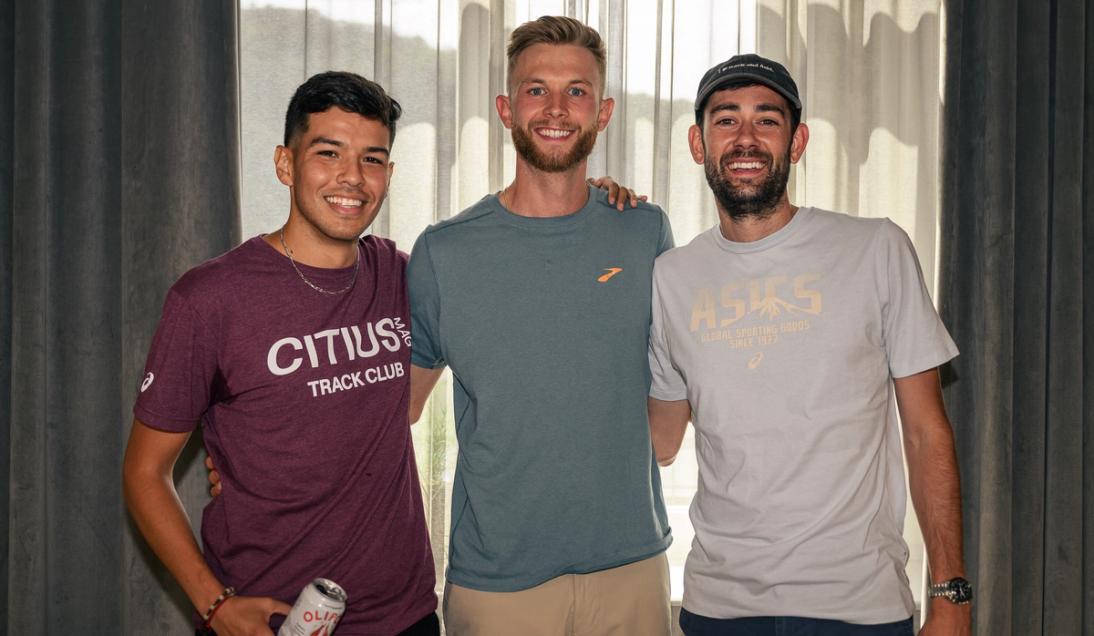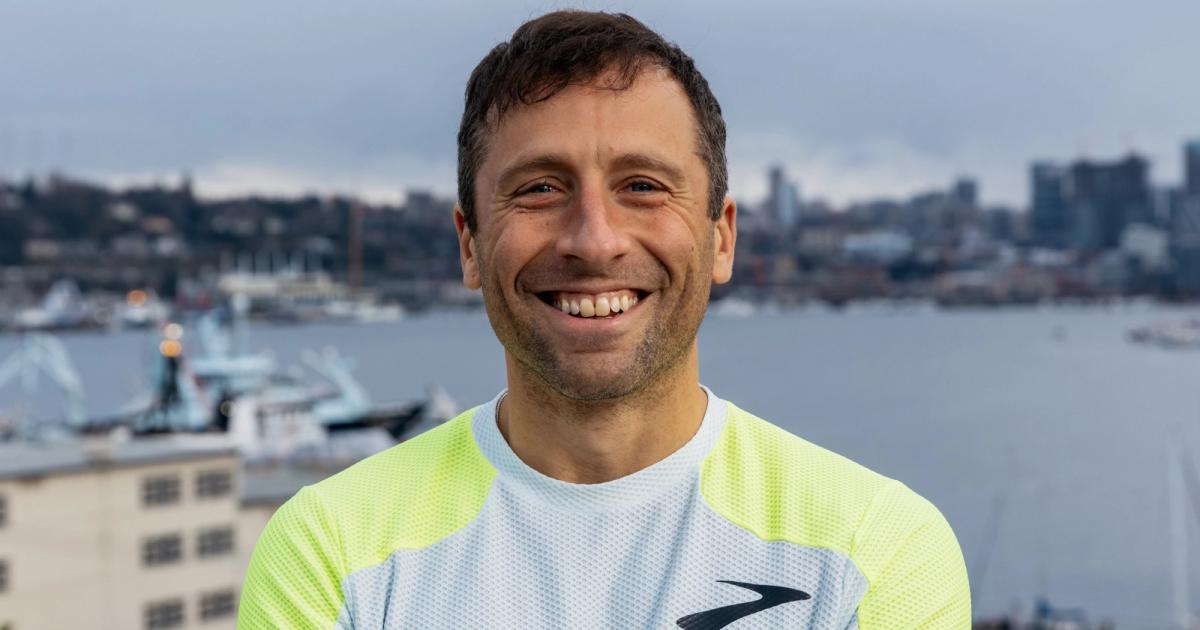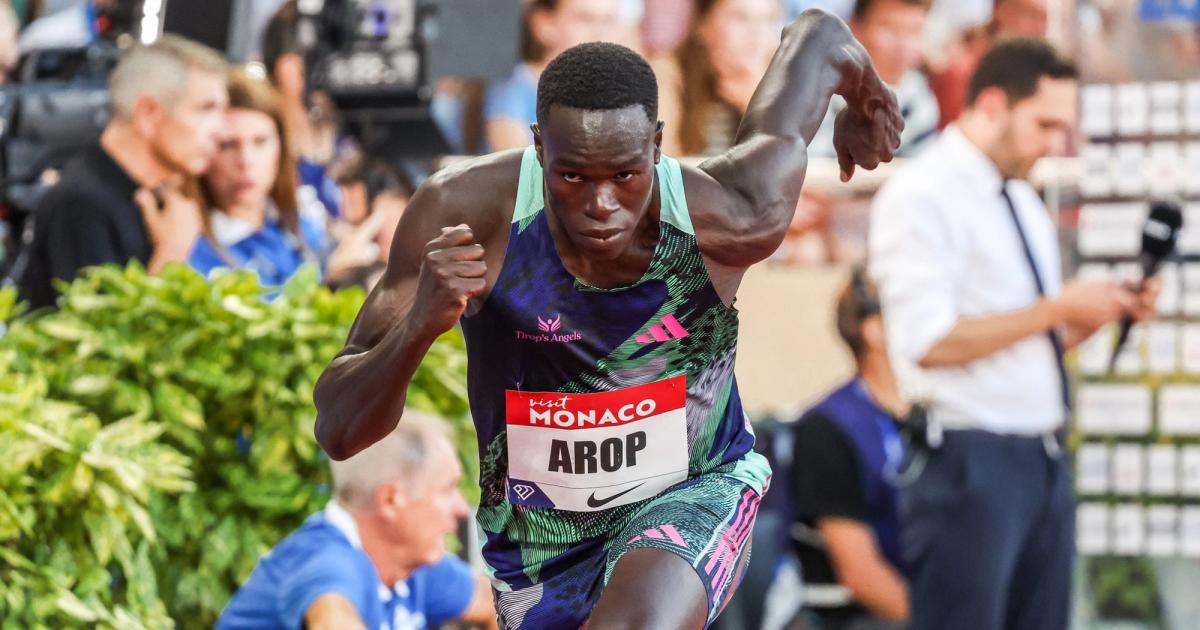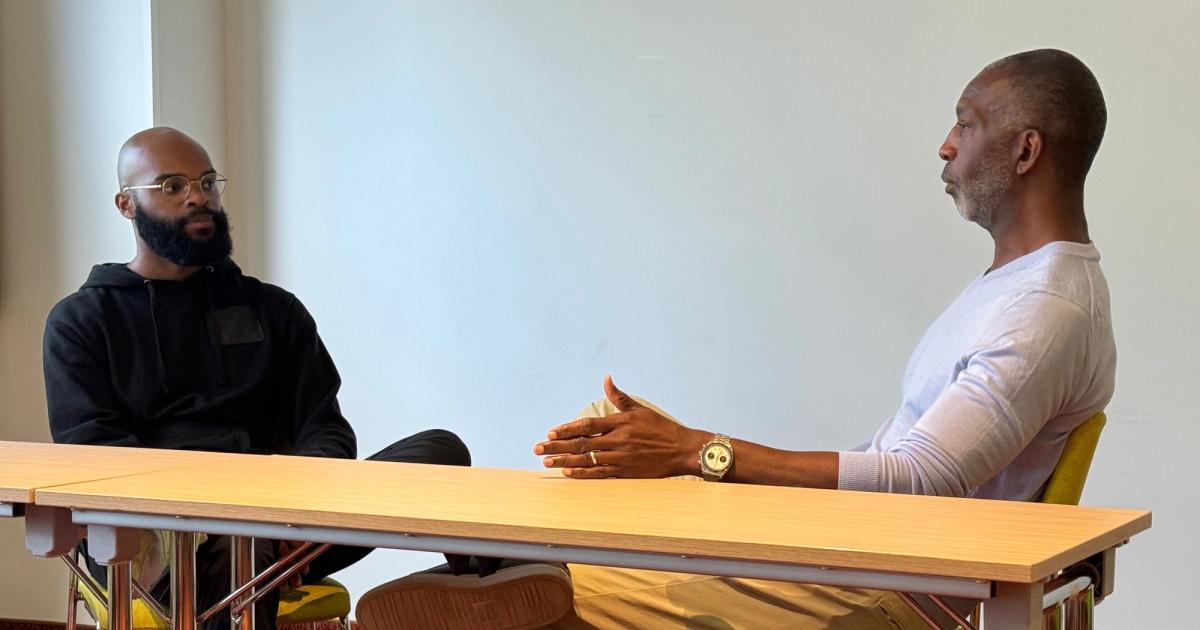January 9, 2025
Listen
"I'm happy with how the year went. It wasn't perfect, but when do you ever have a perfect year? We learned loads and we're trying to implement that now to see how far we can push this year."
Few athletes in the world of track and field command attention like Josh Kerr. The reigning 1500m World champion and Olympic silver medalist returns to The CITIUS MAG Podcast today to reflect on a monumental 2024 season and to share exciting news: Josh is officially set to race the Wanamaker Mile at the 2025 Millrose Games.
Known for his meticulous approach to racing and his ability to thrive on the sport’s biggest stages, Josh enters the new year with ambitious goals, including sweeping the Grand Slam Track series and defending his World Championship title. In this episode, we dig into Josh’s takeaways from a season that included personal bests, thrilling head-to-head battles, and some of the most competitive 1500m races in history.
We also discuss his return to the mile distance, his rivalry with Yared Nuguse, and what makes the Wanamaker Mile one of the most coveted titles in indoor track. Josh doesn’t just run fast—he runs with purpose. And today, he gives us a glimpse into the mindset, strategy, and fire that fuel one of the best middle-distance runners in the world.
Host: Chris Chavez | @chris_j_chavez on Instagram
Guest: Josh Kerr | @joshhkerr on Instagram
Time Stamps:
- 8:49 - Reflecting on his 2024 season
- 11:20 - Reflecting on the Olympic 1500m final
- 13:00 - Thoughts on racing the mile at Millrose
- 14:58 - How he and his coach planned out 2025
- 17:15 - Thoughts on racing World Indoors
- 24:24 - Wedding planning
- 25:22 - Getting nervous before races
- 29:17 - How his racing style compares to Yared’s
- 33:05 - Why he thinks Cole won the Olympic 1500m
- 42:55 - Thoughts on racing the 800m at GST
- 47:24 - Thoughts on his GST competitors
- 59:51 - New Year’s Resolutions
- 1:01:21 - How the 1500m has changed
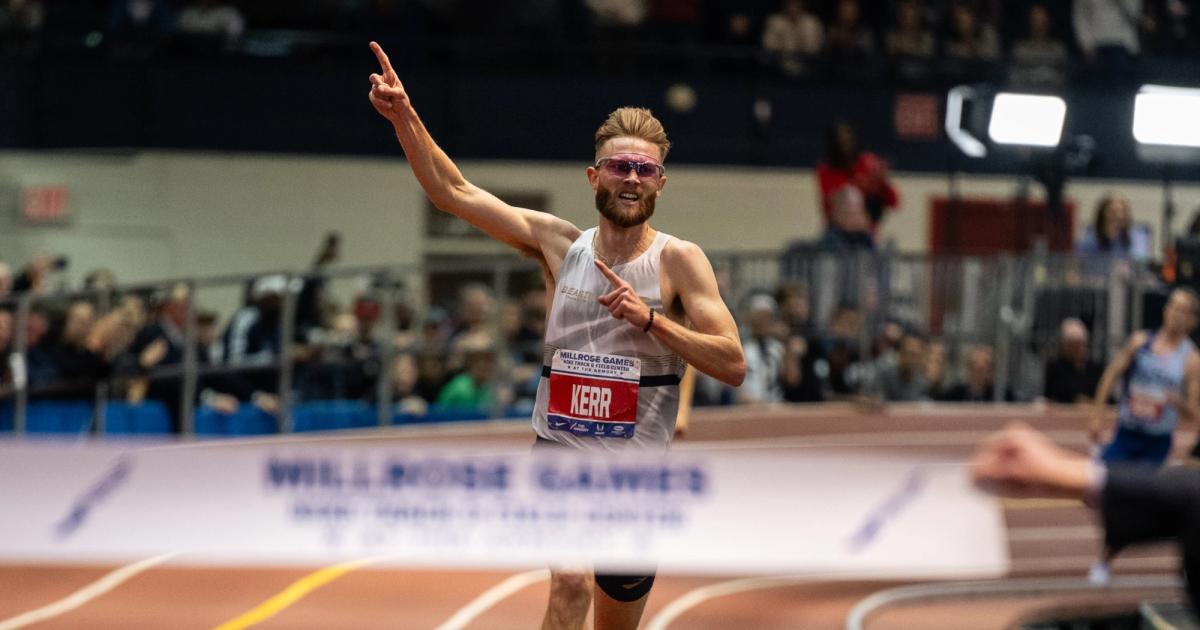
Johnny Zhang / @jzsnapz
The following interview has been edited lightly for length and clarity. You can listen to the full episode with Josh on the CITIUS MAG Podcast.
CITIUS MAG: How do you reflect on 2024 as a whole and everything that you accomplished from the World Indoors gold medal to the Olympic silver medal?
JOSH KERR: We achieved a lot throughout the year. We learned so much. That's the biggest thing… When you miss a title by 0.2 of a second, or whatever it was, everyone goes, ‘Let's find that 0.2.’. It's just not reality. It's, ‘Let's find running 3:27 again on the right day.’ It’s, ‘What did we do right?’ not, ‘what did we do wrong?’ We did so much right. All of us, to be that fit on that day.
To win a world championship title in my country, then break world records and British records all the way throughout the season, and then make it to the Olympics and run a personal best on the biggest stage – you can't walk away disappointed with that or else you're just going to hate the sport. I'm happy with how the year went. It wasn't perfect, but when do you ever have a perfect year? We learned loads and we're just trying to implement that now to see how far we can push this year.
We obviously have the Grand Slam stuff coming up, we have an awesome indoor season coming up, and then we've got the world champs all the way down in September. We've got plenty to work for. The Olympic hangover – you can't really have that for too long because there's a lot of work to be done.
We talked about how epic that race was. How do you think you’ll view that Olympic final in the years to come?
You could feel it in the race. That's not a very normal feeling. I knew we were going to get out pretty fast, but as soon as the first 100m went off, it was like, ‘This is the loudest stadium I've ever heard. This is the fastest, loudest, and the most amazing line-up of athletes.’ You know it when you're in it.
The drama throughout the year, the way that it was built up – it could have flopped, for sure. There were definitely elements where we could have been a bit more cagey or maybe someone came in with a little bit of a niggle somewhere. Everyone came in full fitness and we all just had a proper battle. I think that’s what Grand Slam's going to bring more of and I think that's what the sport's looking for. We were all ourselves throughout the whole process. I personally hold my head pretty high with the result and effort that we put in throughout the year. I think it's just the start, to be honest.
We're here with the official announcement that you will be running the Wanamaker Mile, returning back to the mile distance at the Millrose Games this year. First off, where is your excitement level with getting back to the mile? You'll be going up against Yared Nuguse. It's a showdown of the last couple champions.
I’ve taken a hiatus from the mile for a good couple of years because it wasn't going the way that I wanted it to. I think the last time was against Olli [Hoare] when he won. I’ve run the 3K and the two-mile over the last couple of years and had an absolute blast. It was great from a training perspective.
A big thing after a big high like the Olympics is, ‘What are you excited about? What do you want to go out and win?’ This is it. I want this Wanamaker title. I don't care if it's in four minutes or if it's in 3:45. I want this title pretty bad. When you're throwing in the guys that you're throwing in, it's going to be fast regardless. If you're going to run in New York, it's going to be fast.
I'm going to come in and I'm going to be ready to win. We're five weeks out or so and we're in a great spot. We haven't missed days. We've had a great base of training and now [we’re going] to implement a bit more speed in there to get that shot for the big one.
How did you and Danny [Mackey] approach planning 2025? You're the reigning world champ, so you get a bye for your spot to the World Championships. What went into the decision to run indoors, then four Grand Slam meets, and then get into the heart of the summer season with the Diamond League races?
It was different to any other year. Normally, we have the World Championships or the Olympics and we work back from that to see where we're going to be for training… But then you’re slapping four Grand Slam meets right in the middle of the year. Then it's like, ‘Do we have time for indoors?’ World Indoors is at the end of March and then the first Grand Slam is at the start of April. Now we’re looking at Diamond League dates versus Grand Slam dates.
The way we worked it is, ‘If we put the World Championships here, put Grand Slam here, what can we sneak in indoors?’ I want to race. I don't want to spend too long without standing on the start line. But I also don't want to race just to race. I want to be fit and I want to be ready to go win big races. So Millrose was a staple for me. It's always been a staple for me. I love getting paid to go and run in New York. This is the dream. We’ll have a big group going over there.
Then it kind of gets a little bit foggy for a bit. We're not sure after that, how the body is going to come off of that. Maybe we'll run something else indoors or World Indoors. I think I have the bye for that as well. We’re really focused on Grand Slam and don't want to get that wrong, but we do want to bring the heat when it comes to indoors if we're going to run it.
That's where we're at. It's kind of a fluid indoor schedule. I'll run the four Grand Slams, then there's a couple Diamond Leagues I've got my eye on, and then from there I'll probably just build up into the World Championships like I normally do.
Do you still get nervous before any of these races? What do you ultimately want to get out of a race like Millrose when you’re setting yourself up for Grand Slam where you’ll be running the 800m and 1500m a bunch?
The first race of the season – the nerves are a bit more just because you don't really know where you're at. You've done a couple of sessions that indicate [where you’re at] and we know what we're doing. But I love it. I love going out and competing against the best guys. It gets me up and it gets me working everyday. That's why I signed up for these races so far in advance.
Last year we announced the two-mile world record a good two and a half months out. I was like, ‘I'm nowhere near fit enough to run this, but we're going to do it. We're going to try.’ So now five weeks out, I can confidently say that we're going to be ready to go. I love that people are going to be tuning in to watch it. You know when it’s going to be me and Yared standing on the start line, it's not going to be a boring race. There's going to be some drama in there. We're going to go toe-to-toe and get after it. We do have a longer season with lots more 800s and stuff like that, but we're getting paid overtime for it, so it's not too bad.
If we're pulling in all the characters to tell the story of the 1500m final, and you go back and watch the clip of the opening happening for Cole [Hocker], what is your side to the story?
Whatever was going to build into the me and Jakob narrative was always going to be what people wanted to stick onto. What I think won Cole that race was his first 400m, to be honest. We all got out pretty hard and he was a little bit further back. He was able to have a slightly more balanced first 800m and I think that's what gave him a bit more juice at the end.
My other analysis is – and no one who's run 3:27 has ever said this – but anyone that stutters, then goes again and runs 3:27.5, is fit enough to win that race. Fit enough to win most races. The narrative was that Jakob didn't want me to win so badly that he opened up this gap and let someone else win instead. That's a great narrative that I'm okay with everyone taking.
But what I was trying to do: I slowed down so he would close the door back on Cole because I could see Cole was spritely, somehow. I was like, ‘I just need to wait until 100m [to go], because normally you wouldn't veer out again.’ I kind of held back a little bit and then went again. Then with 75m or 50m to go, I was like, ‘The momentum’s not here. Let's just get to the line as quickly as possible..’
We were running so hard. It was one of those achievement races where the sting was taken off with running the British record. That was something I've wanted for about six years. More than that, but at least going after that for six years. Getting beaten by someone who just ran a massive PB and ran the race of his life, I'm okay with that. I'm not, ‘Win at all costs.’ I'm, ‘Can I be the best I've ever been in the final of the Olympic Games?’ Yeah. And I did that. Then it’s just, ‘Let's move on and try and do it again.
I've done that for my whole career: I've ran a personal best and season’s best in every major final I've been in the last six years. That's just what we do. Sometimes you win it and sometimes you walk away with your head held high and go back and work on things – because it's not over. That's not going to define my career. I think it's going to be a stepping stone and there’s another medal in my safe. We're going to go after some more. I have a lot of respect for those guys who went out and PB’d, did their job, and put on the race of a lifetime. Now it’s about how I can go out and beat them more often on the big days.
Grand Slam Track is less than 100 days away. What do you ultimately hope that these four cracks at the 800m will do for your 1500m in setting you up for your world title defense?
You can learn so much from racing 800s. It’s just more racing experience. We're getting closer to that 800m type of race at this point where it's just, ‘Head down, don't think.’ You just have to brace the storm a little bit and go from there. I've wanted to run more 800s for a while, but it's never really worked out in the schedule. I was racing very minimally. We start these cycles and we're like, ‘Let's figure out what works.’ Racing not that much works for me. I'm really good at coming in, doing the job, going back to camp, and doing the job.
Now it's a new Olympic cycle. Maybe we can put these races together back-to-back and get more experience. Maybe that will make it even better at the World Championship or an Olympic Games. That's what we're trying out now. We're going to be out there a lot more, putting the races together, and trying to go back-to-back with a lot of this stuff.
A lot of people will be leaving their sponsors, a lot of people will be moving coaches and starting a new thing, and leaving the sport or coming into the sport. For me, I think I can slightly change my approach to racing and see how it works. We're kind of in an analysis and data collection point in this next cycle. It starts with just racing a little bit more and seeing what that looks like.
You've always said that you’re meticulous about when you show up to races: it's for a purpose and it’s knowing that you’re going to throw down something fast. This time around, you're willing to take more risks it seems like.
I’m in the spot where we've done a lot, we've achieved a lot, but I'm still really excited to go out and race and put performances together that we can be proud of. Every single person in the sport gets so much shit behind the scenes – like if you look at anyone's Instagram comments, YouTube comments or message board comments… I realized that I'm not here to please anyone. No one is ever going to be happy, so I'm going to be myself, listen to the coaching staff that I think can get us to the top of the world, and I'm going to talk in interviews the way that I want to talk. That's all you can do: be authentic, take the comments on the chin, and move on from there.
For us, it was like, ‘Josh isn’t racing enough. He never races enough.’ To be fair, there's some validity to that. I didn't run a 1500m before the Olympic Games. That doesn't sound smart, for sure. But when you do something everyday, you know what you're doing. We knew how to run a 1500m. We ran a mile and that was enough. We ran some stuff indoors.
This is how we're pivoting a little bit. What can we do to keep the excitement going? It’s going out and making some fast races that people want to watch.
Hit me with your New Year's resolutions for 2025. Sweep the slams and defend the world title?
Having a perfect year would be nice! I'm very much focused on the Slams and getting them right. I think a lot of it needs to come from analysis because there's going to be so much going on that we need to get right. But sweep the Slams, for sure.
Retain that [World Championship] title. It's so easy to say. I want to run a PB in the World Championships final. Whatever that ends up being, we’ve got to walk away proud of that.
How would you summarize the way that the 1500m has changed?
I think there's a difference between being a world champion and being the best in the world. Being the best in the world, you have to win these Diamond Leagues as of right now – and to win these Diamond Leagues, you have to run under 3:30. If you can run under 3:30, you're going to be in these events. Since [Timothy] Cheruiyot, it's been moving along a little bit from there. People have realized that if we run fast, it's going to weed out most people. So the best is always going to win. It’s kind of a numbers game when you're playing it that way.
I would say there’s five or six people in the world that can claim they're one of the best 1500m runners in the world right now. So coming in, there's a lot of egos. Everyone has their own title right now, pretty much. There's that going on as well.
Before, it was a little bit more cagey. It's pretty nerve wracking to run an Olympic final. If you're the best by a good bet, you can be cagey if you'd like. It's a bit riskier, but you follow what the best are doing and the best are running fast right now. That's kind of where we're at. There's so many people in such a small little bubble that you want to take the variables into your own hands versus rolling the dice with it.
Listen to the full episode here.
___________________
Keep up with all things track and field by following us across Instagram, X, Bluesky, Threads, and YouTube. Catch the latest episodes of the CITIUS MAG Podcast on Spotify and Apple Podcasts. For more, subscribe to The Lap Count and CITIUS MAG Newsletter for the top running news delivered straight to your inbox.
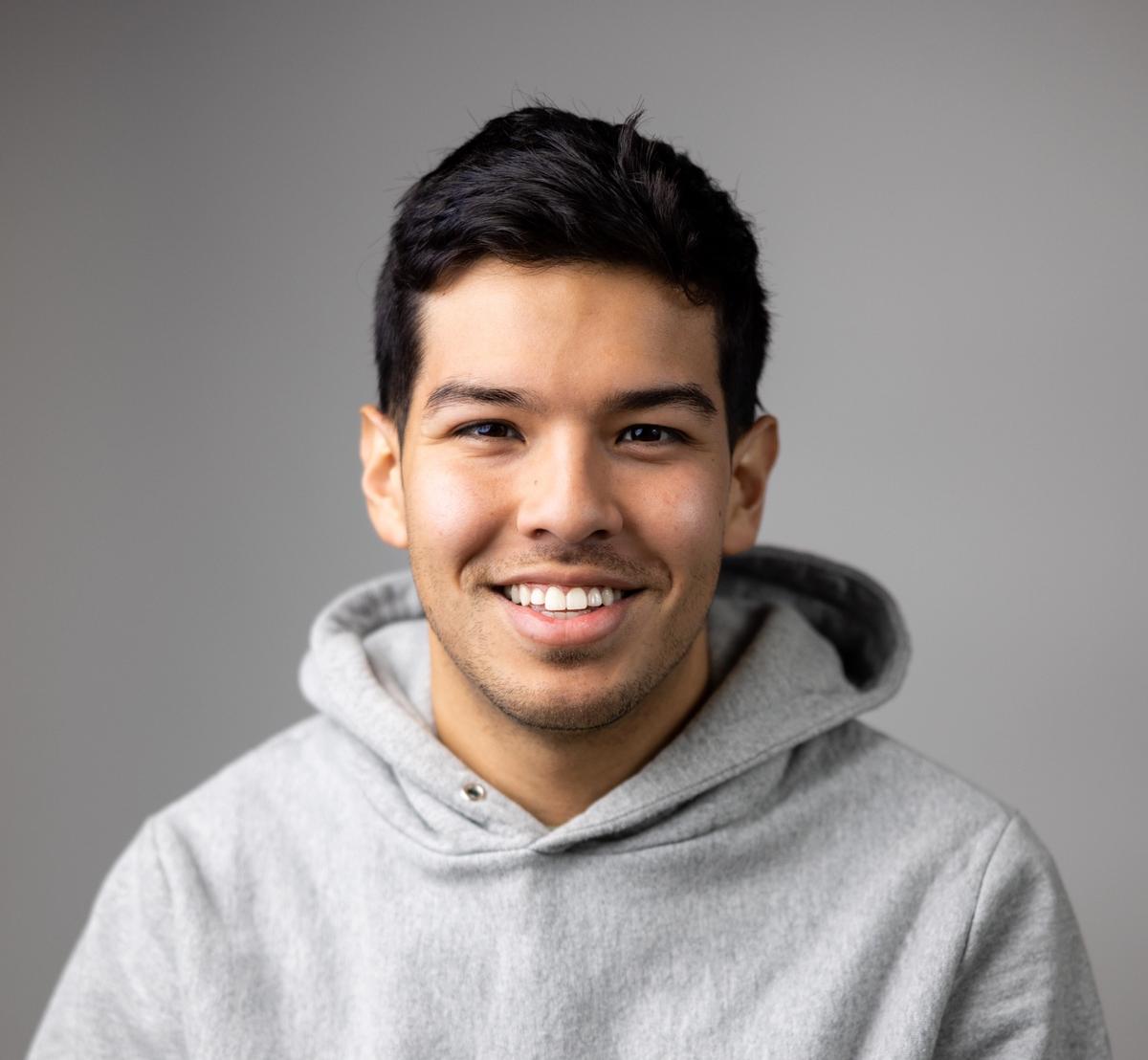
Chris Chavez
Chris Chavez launched CITIUS MAG in 2016 as a passion project while working full-time for Sports Illustrated. He covered the 2016 Olympics in Rio de Janeiro and grew his humble blog into a multi-pronged media company. He completed all six World Marathon Majors and on Feb. 15th, 2025 finally broke five minutes for the mile.
